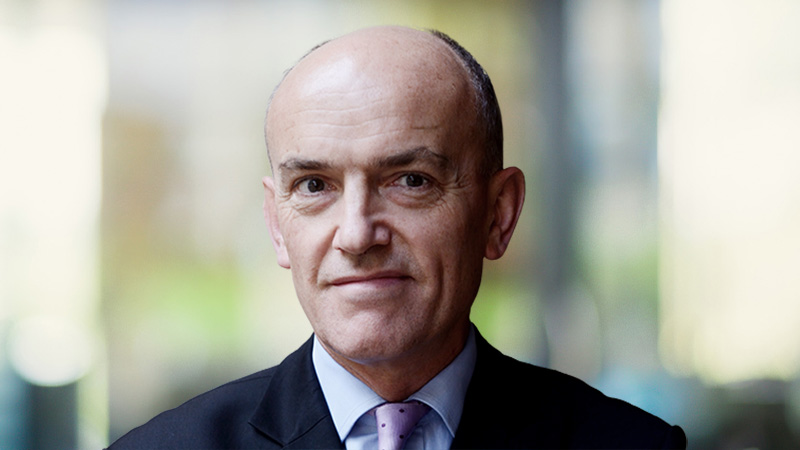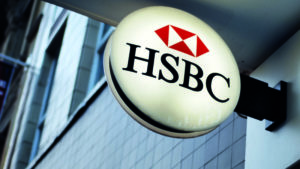By Doug Brodie, CEO of Chancery Lane Income Planners
Investment trusts can make up the backbone of an income strategy for several reasons, but their ability to produce a stream of reliable income is the primary factor.
There are a myriad investment trusts producing income, so it is important for an adviser to be clear about what is actually needed. There are very compelling opportunities available with great potential for both capital and income.
Avoiding yet another commentary on stalwarts such as F&C, this is a sample of less mainstream trusts with differing income streams and risk profiles that may have slipped under the radar. They may well be worth a look for an ISA income.
Plus, investors plying the Rule of 72 know that their investments will be on dry land quicker with higher yields. For example, an investor gets paid back the whole cost of investment in Regional REIT in just two and a half years if the dividend holds up.
Regional REIT
The UK commercial property market was very unloved and very battered after the technical devaluations caused by the Kwarteng debacle, but even 18 months on, Regional’s 144 properties still sit at an eyewatering discount of 76.71%.
It maintained its 1.2p dividend through the fourth quarter of 2023, with the focus now on refinancing, reducing its LTV, and repaying a £50m unsecured bond that matures in August this year. Its share price has sold off since the start of this year, reflecting its deeply discounted £75m equity raise to refinance the loan.
See also: Is it too late to take a renewed interest in gold?
Unsurprisingly, Regional has been impacted by the out of favour office rental market post-covid and had to slash its dividend by 27% since last September – though shares boast a huge 29.6% yield.
This is not one for the faint hearted, but if the downturn in office space proves cyclical, this could prove good value. Plus, we expect cuts in interest rates to deliver technical increases to its net asset value (NAV).
Crystal Amber
Crystal Amber is an AIM-listed fund predominantly investing in small and mid-cap shares where it believes it can add long term value by taking an active role via shareholder engagement. Simply put, they look for ailing firms they can help turn around through active engagement with the board.
For example, Crystal Amber has been an investor in Equals Group, the payment platform firm which it sold out of at a premium. On the other hand, it has proven unsuccessful in turning around De La Rue, the banknote maker, which it has indicated is because of serious failings in stewardship and governance.
Crystal Amber also had holdings in the acquired Hurricane Energy, which meant the fund returned investment via a special dividend of 25p – a gross total return of £20.8m.
With a yield of 24.7% and a 27.7% discount to NAV, it has rewarded shareholders with a total return of 38.7% over the past three years against a negative return of 11.5% from the IT UK Smaller Companies sector.
Dunedin Enterprise
Established in 1973, Dunedin Enterprise is a private equity fund that provides medium to long term finance in return for an equity stake. This provides investors with opportunities to gain exposure to private companies and take an active role in the running of the companies they invest in.
Best suited as a long-term holding, it currently invests in global processing services (GPS), the payments processor behind digital banks, fintechs and other financial institutions.
In 2022, Dunedin returned £41m to shareholders and is currently on a 21% discount to NAV, with a dividend yield of 11.8%. Investors in Dunedin Enterprise require patience – as with any private equity investment.
Henderson Far East Income
Those concerned about being over reliant on the UK for dividend yields could consider diversifying their income from the far east.
The story there has been one of growth over many years. It looks to produce income from well established businesses in the region, including Samsung, Hyundai and Samsonite to name but a few – brands we are all familiar with.
See also: Jupiter Income Trust to rebrand after Whitmore exit
Essentially, the managers look for high quality firms that can benefit from secular growth, such as the growing middle class in the region.
Henderson is aware of the risks in the region and gears the fund modestly at 6%. The fund has a track record of delivering growing dividends and is on a small discount of 3.6%, which is still attractive to pick up quality firms.
With a 10.98% dividend yield, this fund makes a great income diversifier, and its share price is on a positive trajectory.
Chenavari Toro Income
Chenavari Toro Income invests in structured credit markets or asset backed transactions. These fall into three categories –direct origination strategy, asset backed securities and private asset backed finance strategy.
The manager expects poor conditions in the European leveraged loan market over the next couple of years, with an increased risk of default.
The fund has outperformed its peer group over the past one, three and five years, and yields 12.2% on a 21.9% discount. It is certainly an interesting option in the alternative investment space for those needing diversification.
3i Infrastructure
This trust is a FTSE 250 constituent and primarily focuses on investments in infrastructure projects such as utilities & transportation. The company has a portfolio of 13 economic infrastructure businesses valued at £3.9bn, and seeks to benefit from megatrends such as energy transition, digitalisation, and demographic changes.
Launched in 2007, it has a proven portfolio providing consistent growth and significant income which has supported a progressive dividend.
For those looking for a solid if not spectacular dividend of 3.7%, 3i has £104m in income and non-income cash to support its pay-outs. The company currently has a dividend target of 11.9p, with a five-year dividend growth of 4.6% per annum.
If you add in a 7.4% discount to NAV, then this is one that is certainly worth considering for an income-generating ISA.
See also:
See also: IA fund universe suffers £2.7bn net outflows in February







